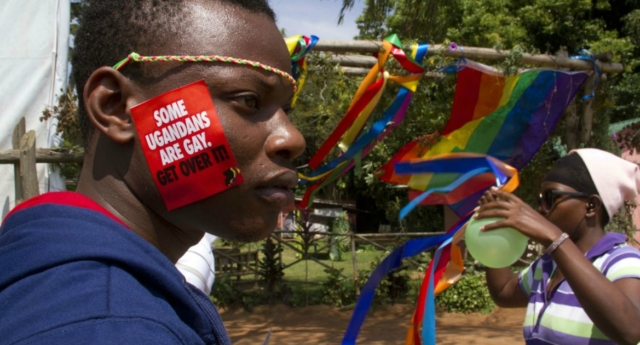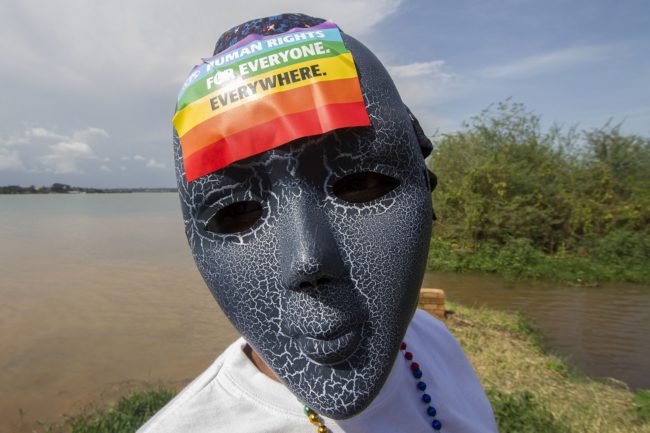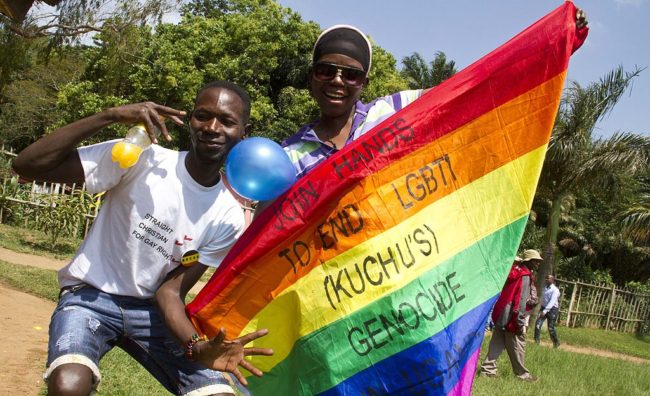Ugandan LGBTQI Activists Announce Plans for Pride following Crackdown

LGBTQ+ activists in Uganda have announced plans to run a Pride event this year after a violent crackdown in 2016 which saw police raids and arrests at the event.
Ahead of the 2016 Pride, government officials warned that they would arrest anyone that took part.
Simon Lokodo, the Minister of State for ‘Ethics & Integrity’, likened LGBTQ+ people to paedophiles in the statement in which he warned people would be apprehended.
He said: “We are aware that there are inducements, including money, being offered to young people to promote the practice.
Despite emphasising the lack of violence, organisers of the Pride officially cancelled it out of fear of physical harm.

“It is with very heavy hearts and deep-felt sadness that we announce the cancellation of Pride Uganda 2017.
“Following the Police raid and interruption of the Pride parade last year, extra precaution was taken in organising this year’s festival,” the statement read.
Despite the last Pride being “officially” cancelled, many Pride-goers still went to the event but they were broken up by police and some were arrested, including organiser and executive director of Sexual Minorities Uganda (SMUG), Frank Mugisha.
Any hope for a Pride event in 2017 was completely dashed after Lokodo promised “arrest, even violence”.
Living conditions for LGBTQ+ people are reportedly getting slightly better in the country, with activists reporting fewer people being “arrested, put in police cells and tortured”.
Activist Isaac Mugisha, from Uganda, told The Daily Beast that he and other LGBTQ+ activists were now trying to work with straight allies to ensure Pride events could go ahead without being raided.
“The momentum is now so different to 2015. Then just a handful of LGBTS gathered. Now we are looking at hundreds of people wanting to gather for a Pride event,” Isaac Mugisha said.

Frank Mugisha (who is not related to Isaac) added that “things are not looking so bad so far.
“Learning from last year our idea is to start planning early for Pride 2018.
“Our visibility is still very important to us, and we are hoping to have Pride this year, and a much bigger event,” he said.
However, he explained that it is still a very real fear that a Pride event could be raided by police.
“Even with the efforts to sensitize states’ institutions and lawmakers there is still so much discrimination and violations of LGBT persons going on here,” he said.
Some LGBTQ+ activists argue that the country is no safer than two years ago.

Adrian Jjuuko, executive director of Human Rights and Awareness and Promotion Forum (HRAPF), said: “From my perspective, I do not think any progress has been made, particularly in LGBT organizing. To the contrary, the situation seems to be worsening since 2016.”
Ugandan President Museveni signed the draconian Anti-Homosexuality Bill in February 2014. The law called for repeat offenders to be sentenced to 14 years in prison and to make it a criminal offence not to report someone for being gay.
However, the country’s Constitutional Court later struck down the bill, finding that the speaker of parliament acted illegally by moving ahead with a vote on the law despite at least three lawmakers objecting to a lack of quorum.
Despite this, it still remains illegal to be gay in Uganda.